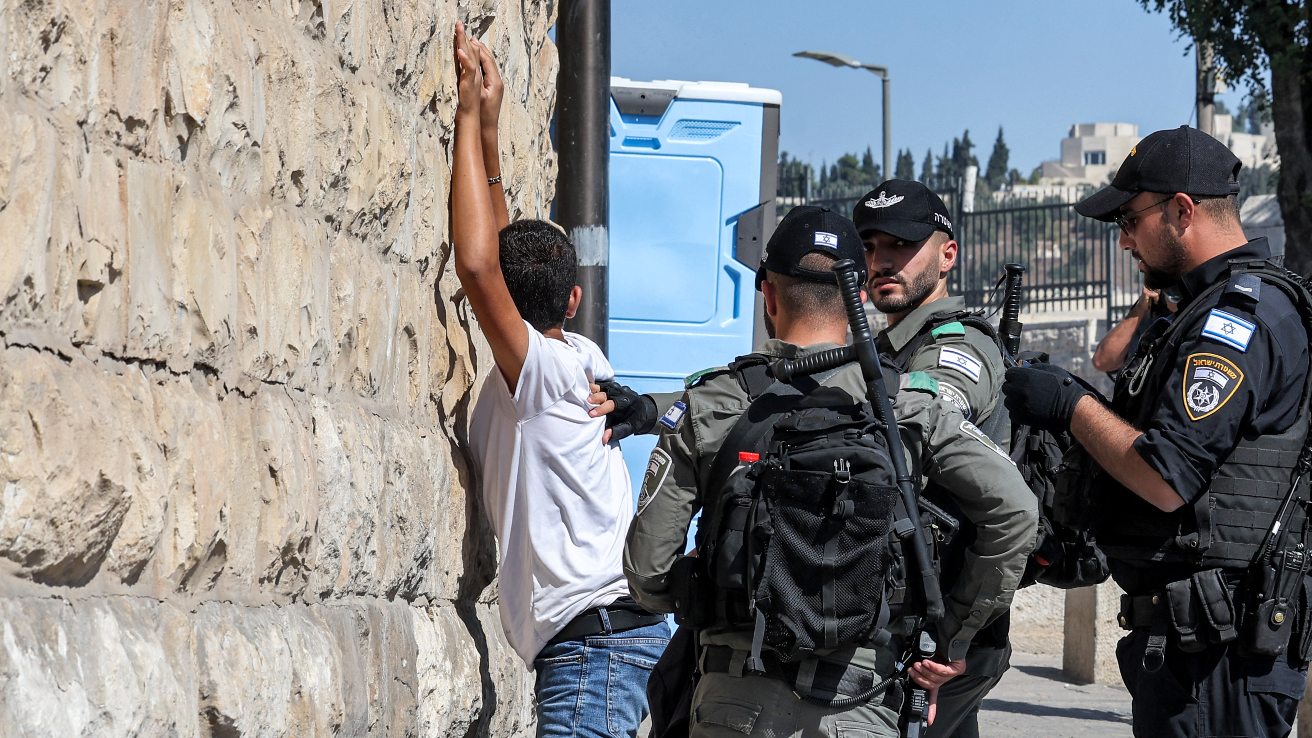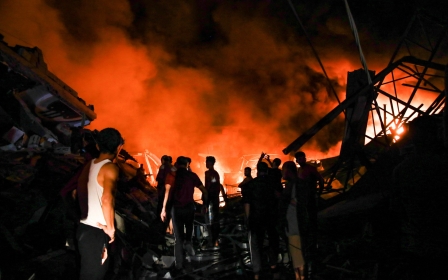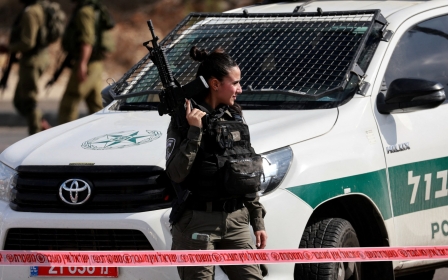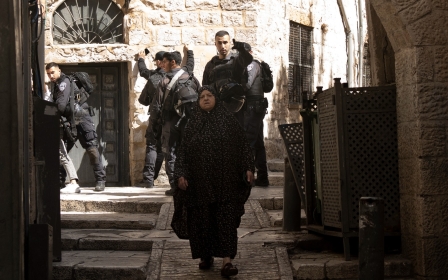Israel-Palestine war: Israeli repression in Jerusalem spreads fear among Palestinians
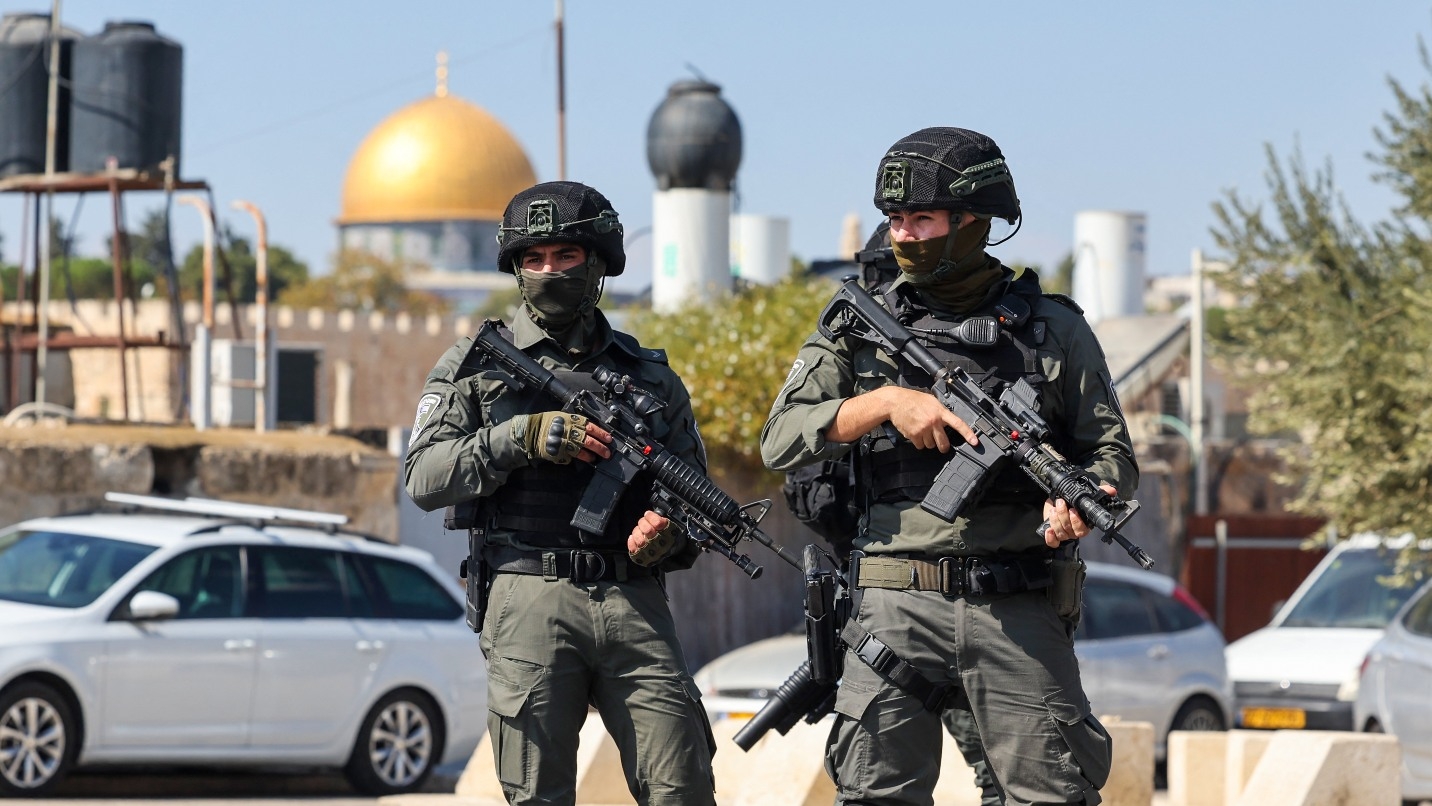
East Jerusalem’s streets are quiet but far from peaceful.
For Palestinians in the city, a new reality has existed since 7 October even among those for whom checkpoints, soldiers, suspicion, and the humiliations and discrimination of occupation constituted daily life.
Leaving home, whether on foot or in a car, is now to risk being stopped, questioned and potentially assaulted by Israeli security forces or by patrols of volunteers armed by Itamar Ben Gvir’s security ministry.
“Jerusalem is on edge,” Amer Aruri, a resident of the Beit Hanina neighbourhood told Middle East Eye.
“There have been numerous assaults. The streets are deserted. Most people are hesitant to venture out. I’m genuinely fearful.”
New MEE newsletter: Jerusalem Dispatch
Sign up to get the latest insights and analysis on Israel-Palestine, alongside Turkey Unpacked and other MEE newsletters
At least five people were killed in East Jerusalem last week, according to the Palestinian health ministry.
In Issawiya, three people, including two boys aged 15 and 16 years old, were shot dead by security forces during a protest for Gaza on Friday. Last Tuesday, two people were shot dead by security forces in Silwan for lighting fireworks.
New checkpoints
New checkpoints have appeared suddenly around Palestinian areas and along routes used by Palestinians travelling to West Jerusalem for work.
Security forces, more heavily armed than usual, are stationed on every corner. Neighbourhoods feel more like military bases.
“Many young people are reluctant to work due to the hostile environment and rampant attacks,” said Aruri.
Follow Middle East Eye's live coverage for the latest on the Israel-Palestine war
Some with jobs in West Jerusalem say they are too scared to travel on Israeli public transport out of fear that they will be identified as Palestinian.
“I usually take the Israeli bus to work but I don’t dare,” said Mohammed, a resident of the Old City who did not want to give his real name. “If they know I am an Arab I will definitely be attacked.”
'I usually take the Israeli bus to work but I don’t dare. If they know I am an Arab I will definitely be attacked'
- Mohammed, Old City
For many, there is no point in trying to get to work anyway. Some businesses that employ Palestinians have closed their doors or told their workers not to come in, fearful of being targeted by far-right social media groups that have called for attacks on Palestinians.
Last week, MEE reported on a far-right Telegram channel which called for prominent Palestinians in East Jerusalem – including the imam at Al-Aqsa mosque – to be eliminated.
But the fear of attacks fuelled by incitement on social media runs deep. One social media post seen by MEE called for businesses that gave jobs to Palestinians to be burnt down.
Omar, from Silwan on the southeast edge of the Old City, told MEE he had suffered from toothache for the past week, but considered the situation to be too dangerous to visit a dentist.
“I worry if I go out I won’t come back alive. We are all targeted at the moment,” he said.
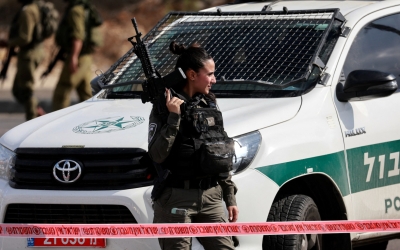
Around Sheikh Jarrah, police cars monitor comings and goings. Concrete blocks – typically installed to protect against car-ramming attacks but also a potential barrier to close off roads entirely – have been installed along routes into areas including Issawiya, Sur Baher and Shuafat.
A popular path south of the Old City, along the route of the old Ottoman railway line to Jaffa, one of the few places where people from East Jerusalem and West Jerusalem commonly mingle, is now patrolled by police motorbikes. Every Palestinian is stopped and forced to show their papers.
In the Old City, shops are shuttered and the few who venture into the narrow alleyways are stopped and searched.
“People are really, really afraid. It’s very tense,” said Mohammed.
To be Palestinian is reason enough to suffer a beating.
“Young boys, aged 14 to 17, are stopped and their phones checked. If content related to Gaza or current events is found, they're beaten and their phones confiscated,” said Aruri.
MEE has seen one video which shows police officers enter a shop in Sur Baher and demand to see the shopkeeper’s phone. The shopkeeper is then marched away, without being allowed to close the shop.
In another video seen by MEE filmed in the same neighbourhood, five police officers stop a car and force the driver and two passengers to get out while the vehicle is searched. The three men are then beaten – struck with guns and kicked – at the roadside.
The situation is especially tense and unpredictable after dark and around the Old City, where checkpoints once manned by regular soldiers now deployed to the south are policed by Ben Gvir’s volunteers, or heavily armed police tactical units.
“They're not the same forces we see normally. They're more aggressive. They're harassing people,” said Mohammed.
On Tuesday, Adalah, which campaigns for the rights of Palestinians in Israel, said that the loosening of gun controls and the creation of militias by the national security ministry was putting Palestinian lives in peril.
Adalah said: "Ben Gvir’s policy of widely distributing lethal firearms among Jewish civilians is aimed at making it easier for them to shoot Palestinians... By labeling Palestinians as 'enemies', Ben Gvir, who does not conceal his racist views towards Palestinians, seeks to legitimise the blanket impunity granted to both Israel’s armed forces and ruthless Jewish-Israeli vigilantes for killing and injuring Palestinians.”
'In all my years, I've never experienced anything as tough as this. Everything changed overnight [on 7 October]'
- Fakhri Abu Diab, Silwan
Fakhri Abu Diab, a resident of Silwan in his fifties, told MEE the situation was worse than anything he had experienced during the first or second intifadas.
Young men had been stopped, their phones confiscated, and then arrested even during visits to local shops, he said. Every Palestinian car passing through checkpoints in the neighbourhood was liable to be stopped.
“Only those in dire need, seeking basic necessities like food or bread, dare to venture outside,” he said.
“Even if one does muster the courage to go out, the uncertainty looms: will I be able to return the same way I left?”
Access to the Old City and Al-Aqsa Mosque had become an “ordeal”, Abu Diab said. On Friday, Israeli forces allowed men aged 70 or over to attend prayers.
“In all my years, I've never experienced anything as tough as this. Everything changed overnight [on 7 October],” he said.
“And the worst part is that it feels like this is just the beginning.”
This article is available in French on Middle East Eye French edition.
Middle East Eye delivers independent and unrivalled coverage and analysis of the Middle East, North Africa and beyond. To learn more about republishing this content and the associated fees, please fill out this form. More about MEE can be found here.


